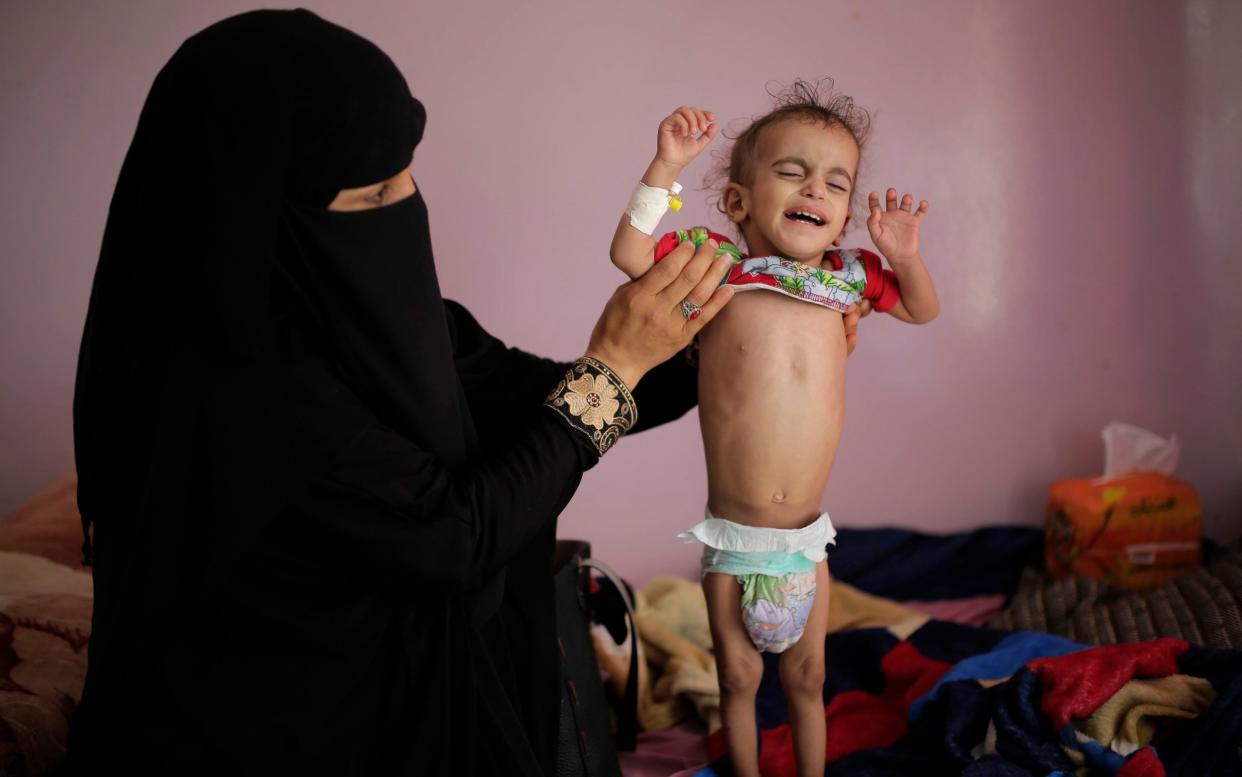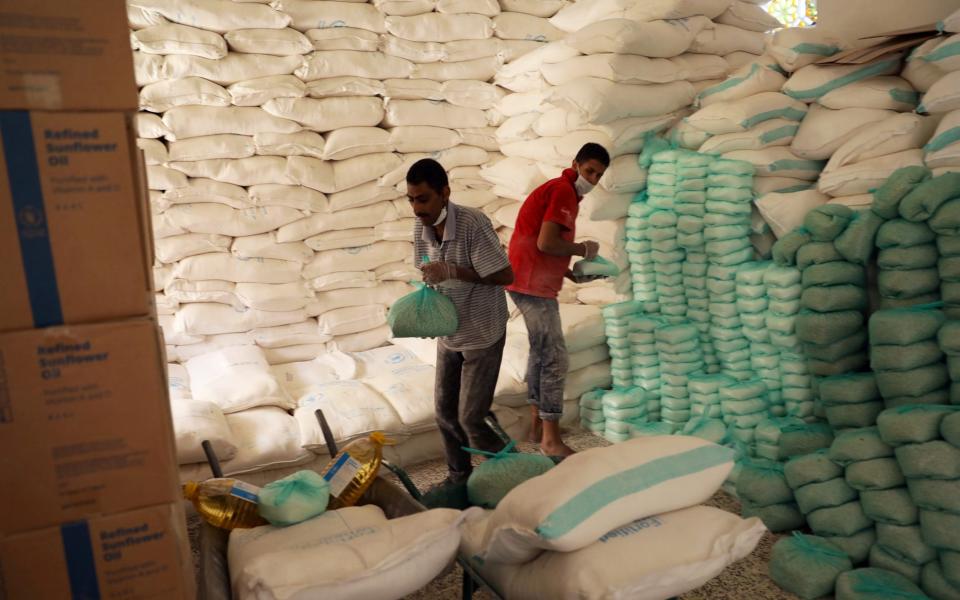One child dying every 75 seconds as Yemen on brink of 'biggest famine in history'

Children in Yemen are dying at a rate of one every 75 seconds with the country at risk of suffering “the biggest famine in modern history”, the head of the United Nations food agency has warned.
David Beasley, executive director of the World Food Programme (WFP), described the situation in the war-torn country as “hell on earth” after a visit earlier this week.
"Just two days ago, I was in Yemen, where over 16 million people now face crisis levels of hunger or worse,” he told the UN Security Council on Thursday.
“These aren't just numbers. These are real people. And we are headed straight toward the biggest famine in modern history.
"It is hell on earth in many places in Yemen right now. Around 400,000 children may die in Yemen this year without urgent intervention. That is roughly one child every 75 seconds.
"So, while we're sitting here, every minute and a quarter, a child is dying. Are we really going to turn our backs on them and look the other way?”
His comments come after Britain drastically cut its aid to Yemen, which has been devastated by six years of civil war, while also condemning recent violence and calling for a ceasefire.

The Foreign Office has announced donations of "at least" £87 million for Yemen this year, down from £164 million in 2019/20, with ministers saying that the pandemic had created "a difficult financial context for us all".
British aid is helping to feed 240,000 of the most vulnerable Yemenis each month, support 400 health clinics and provide clean water for 1.6 million people, according to the Foreign Office.
However, the decision to cut overall spending has been condemned by more than 100 charities and MPs across the political spectrum. UN Security General António Guterres, said reducing aid was a "death sentence" for the Yemeni people.
The conflict between Yemen’s Saudi-backed government, Houthi rebels supported by Iran, and separatists in the south of the country has killed more than 100,000 people and left an estimated 2.3 million children under 5 suffering from acute malnutrition.
Almost one-third of families have gaps in their diets and rarely consume foods like pulses, vegetables, fruit, dairy products or meat, the WFP says.
Mr Beasley said that on this week's visit he had witnessed “dead silence” in children’s hospital wings where young patients were “too sick and too weak to either cry or laugh”.
“The answer is simple,” he said, “we have a vaccine for this. It is called food. All we need to save lives is funding”.
A UK government spokesperson said:
"The UK remains steadfast in our support to the Yemeni people as one of the biggest donors of lifesaving aid and through our diplomatic efforts to bring peace.
"We remain committed to ending the conflict, which is the only way to avert a humanitarian disaster.
"The UK has contributed over £1 billion to Yemen since the conflict began in 2015, and our support over the next financial year will help feed an additional 240,000 of the most vulnerable Yemenis every month."

